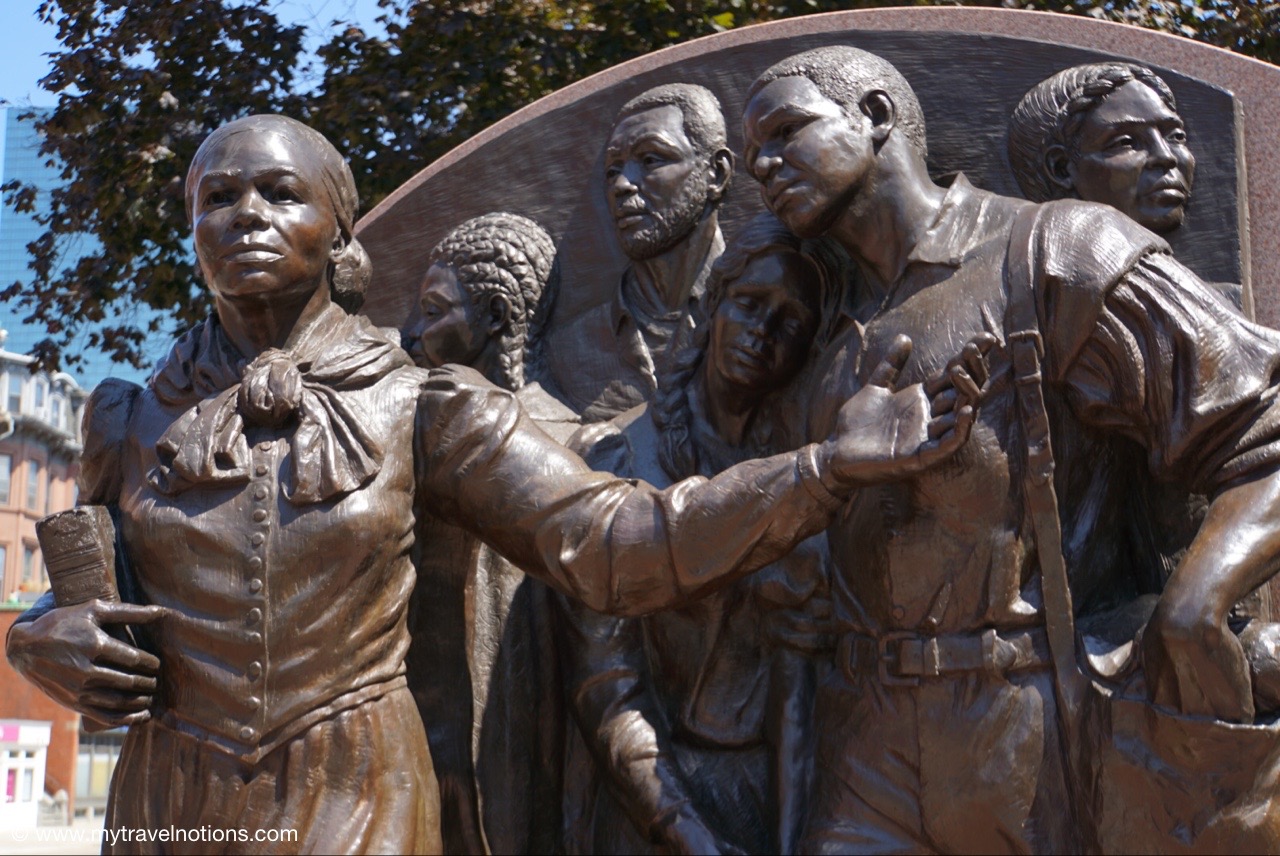Everyone believes in free speech for themselves.
"I believe in free speech, but...." Then comes the reason the speaker doesn't believe in free speech. An ancient concern that may predate language is the fear of unaccredited thoughts. John Milton was a learned man, fearless of others' words.

This reflective image of social memory links to Dartmouth University's online rendering of Milton's speech to parliament. It comes from a NY Times article about an exhibit at New York Public Library.
John Milton used the word “areopagitica,” in 1644, as the title of a speech explaining his concepts of press freedom. It was a polemic to the English Parliament, during England's Civil War, arguing against the licensing, and therefore approval, of printed materials. Milton argued for publication without prior constraint, trusting in the ability of readers to sort out the truth. He argued that truth is found through a full understanding, which demands a full hearing, of all ideas, good and bad, and all assertions, true and false. His argument turns on the assertion that good and bad, true and false, cannot be determined a priori, without inspection by people with similar and opposing views.
The idea that truth comes to humans through a tortuous process of distillation is not unique to Milton. It is a common artistic trope, found, for example, in the seemingly incoherent poetry of Robert Burns, as he views facts from many angles, as a jeweler turns a diamond, to measure the refractions and reflections in total. So, the truth is deduced by seeing it beamed through many different mental representations. Milton’s more unique argument was that everyone, layman and scholar alike, should be allowed to participate.
“Areopagitica” is, in Latin, the positive, adverbial form of areopagitic, which refers to the Areopagus, the highest court of ancient Athens. Thus, Areopagitica is Milton’s literary invocation of the judicious wisdom of the Greeks, as a positive descriptor of his essay.
“The Areopagitica” is widely recognized as a foundational argument for the concept of free speech in modern, liberal democracies. The closely reasoned justifications for allowing an unconstrained, public exploration of ideas are cited in scholarly, political, and legal texts. The United States Supreme Court has cited the work by name four times. It has been a special project of educators for centuries.
Another, later exhortation toward free speech in John Stuart Mill's “On Liberty,” published in 1859, joins “Areopagitica” as an expansion and clarification of the modern conceit of people thinking for themselves and ferreting out the truth without censorious guidance from the priesthood, either religious or secular. It still animates scholars today.
The notion of allowing individuals to freely exchange ideas without a “truth gatekeeper” is fundamental to and virtually synonymous with the idea of democracy. It has evolved slowly, has survived numerous challenges, and continues on probation, needing re-approval from each succeeding generation. The sense of the childhood jingle, “Sticks and stones will break my bones, but words will never hurt me,” has taken a long time ascending into practical adult discourse, and is still, under certain circumstances, maligned, attacked and subverted in almost every human institution. A recent survey of American college students found a majority of respondents in favor of prohibiting speech offensive to them. “The Areopagitica” and “On Liberty” were written by scholars, but it takes experience outside the scholarly cloisters to appreciate the depth of their wisdom.
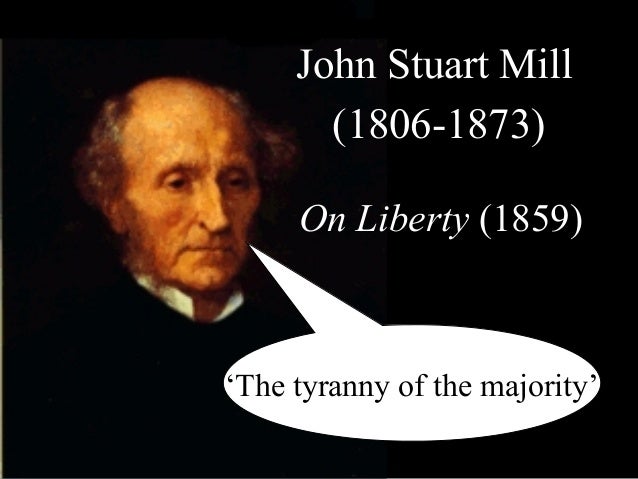
This grim picture of John Stuart Mill links to analysis of his famous publication by the National University of Singapore.
Everyone believes in freedom of speech...for themselves. It is the speech of others that concerns us. Many people express their misgivings about free speech with the phrase, “I believe in freedom of speech, but….” After the conjunction they explain why they don’t believe in free speech. Such concerns rest on two perceived problems. First, it is feared people will say things that are obviously false, thus misleading their listeners. Or, second, people will say things so incorrect, inappropriate, and odious that just expressing them is unacceptable. The usual solution is the idea John Milton was arguing against: government licensing of expression. Believing that common people, other than ourselves, are smart enough, and moral enough, to withstand the temptations of liars, and the errors of the misinformed, is a great leap from our subjective self-image to the imagined soul of the crowd.
Free speech has been much in the news, lately, in the land of the free. There has been a growing sense that free speech needs to be both defended and tamed, and this conflict has been in evidence on American college campuses. The University of Chicago recently announced its solidarity with Milton and Mill. The Dean of Students, John Ellison, published a letter to the incoming class of 2020, and the President, Robert Zimmer, wrote an Op Ed for the Wall Street Journal. The Chicago Tribune gives us the letter along with student reactions. The whole subject has been stirred into the daily news cycle. As usual, many are in favor of free speech, for themselves, but suspicious of others.
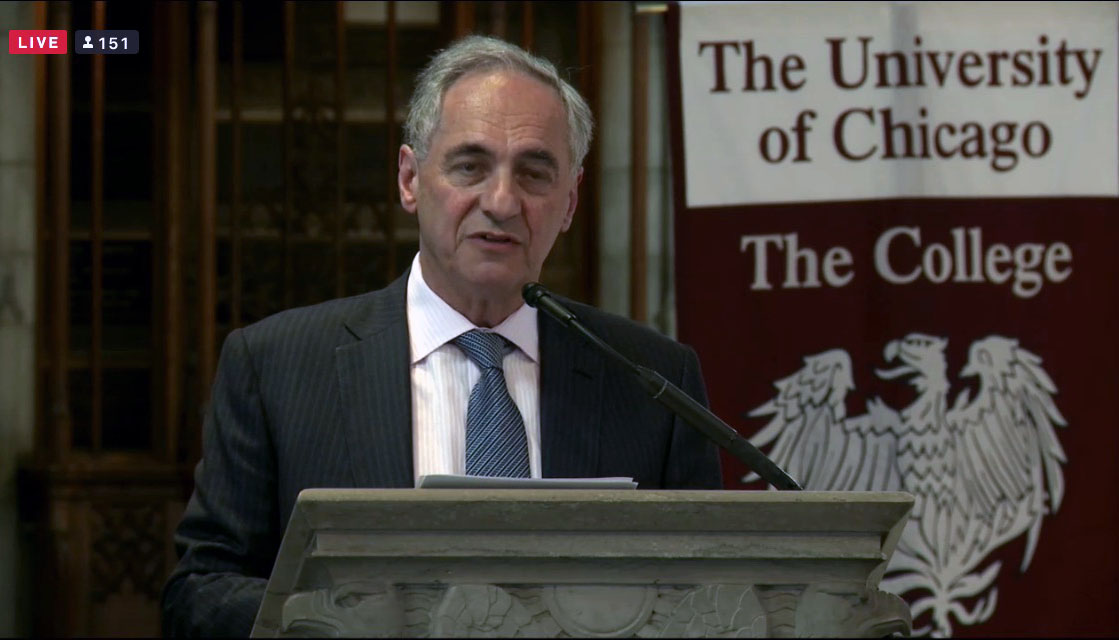
This picture links to in the Chicago Tribune article about the controversy at the University of Chicago.
Our concerns about free speech are trussed upon the tension lines between the individual and society. Our society consists of multiple groups to which we belong or with which we interact, with a complexity analogous to the gravity that organizes the universe. Everything exerts a force on everything else, stronger in close proximity, and weaker at greater distances. Just so, we are influenced by family, governments, clubs, associations, social media, entertainment media, employers, and countless others, all exerting their force through expectations, taboos, and constraints.
The strongest of the social forces, in most of us, is our personal, subjective view of what we should do at any moment. Finding a way to balance all those forces is the human social problem, sometimes called dilemma, because of the conflicting choices at every moment in every life. It can seem to be a great leap of faith, indeed, to trust that all of us will balance these things well if we are left to our own wits. In fact, it isn’t just balancing them well that concerns us. One overriding fear is that unsupervised individuals will forsake society entirely, condemning all of us to catastrophe. The opposite fear, equally prevalent, is that society will dominate and our individuality will cease to exist, like the hunter finding Lewis Carroll’s boojum. Those two fears are the tension between individual and society.
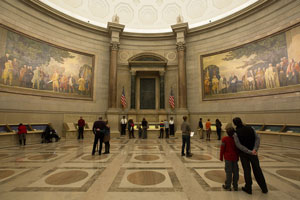
Here is a link to the National Archives collection of Founding Documents. They weren't handed down by God. Each generation must reaffirm its belief in freedom.

In Lewis Caroll's "Hunting of the Snark," finding the wrong kind of Snark causes one to disappear. The link is to the National Archives Snark collection, including the full text.
Both “Areopagitica,” and “On Liberty” speak to this wider context, both personal and social, of our human dilemma. Both essays rest on the same underlying assumptions. Free speech is only a good idea if most can be trusted to reason and speak. If we assume only “special” people or institutions can find and recognize truth then, of course, we must ensure significant communications come from them, and other people and groups must be restricted to expressions licensed by them. Both Milton and Mills provide not just an argument for letting people speak their minds, but a template, of sorts, for how to find the truth. They tell us how to perfect this business of living in a society of individuals.
It is the templates they provide, as much as the basic arguments, that keep Milton and Mills at the center of any well educated mind, even those who have read little if any of their work. Education is, and ought to be more greatly, influenced by the thinking of these giants. Fads dominate public education as they do all human enterprises, but the centrality of freedom and liberty to the progress of humanity, argue strongly for ensuring that the ideas, if not the words, of “The Areopagitica,” and “On Liberty” find their way into our educational curricula.
But wait! What about social media and children. We all know how harmful that can be. Isn't that an exception to free speech?
Disruptive technology has always been used as an excuse for censorship. Speech is no longer the spoken word uttered within earshot of potentially offended ears. It now flows off the printing presses, flies through the ether, intrudes into private homes, and onto the ubiquitous screens of anyone capable of clicking and swiping a finger. Young children can now engage with pedophiles and pranksters. The potential harms to developing psyches is easily anticipated and expansively documented. Aren't we obligated to censor things that can be seen by such children and other vulnerable people?
Mankind's obligation to itself is to protect its children during their development. It has always been thus. Censorship is a lethal poison. Safeguards built into the means of communication, and parental responsibility for children's engagement are far safer remedies. That's how we protect them from other poisons.
The current fad of exploring student feelings and self-identity are wise, so long as we remember the underlying importance of applying reason to the pursuit of truth, and curiosity to the thoughts of others, even the disagreeable ones. Learned people once found Socrates, Christ, Lincoln, and Martin Luther King Jr. disagreeable. Studying Milton and Mills, if nothing more than these two documents, provides a framework for fearless understanding.
Certain elders used to say, “The jury is still out on whether people are smart enough to govern themselves.” That jury will ever be out. Each generation must reprove the assumptions underlying freedom. Each generation born into freedom inherits the victories of their ancestors, and the sobering caution of Benjamin Franklin: you have, “A republic, if you can keep it.”

Freedom of speech has allowed our society to evolve an expansion of freedoms. Thus, we now understand the word "men" in the above quote as "people," even feeling exasperation with Franklin for his cramped view. The link is to a modern take on his famous "republic" quote, in a modern political context.


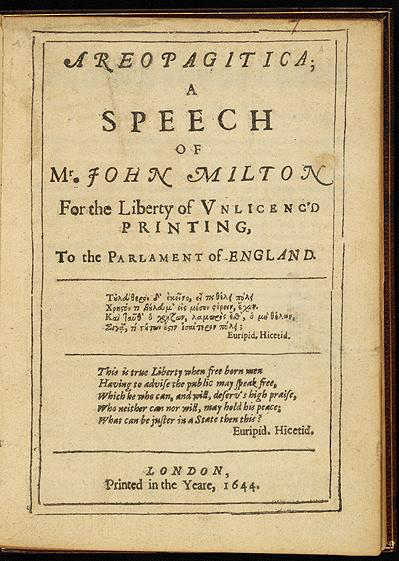

/thumb.jpg)


